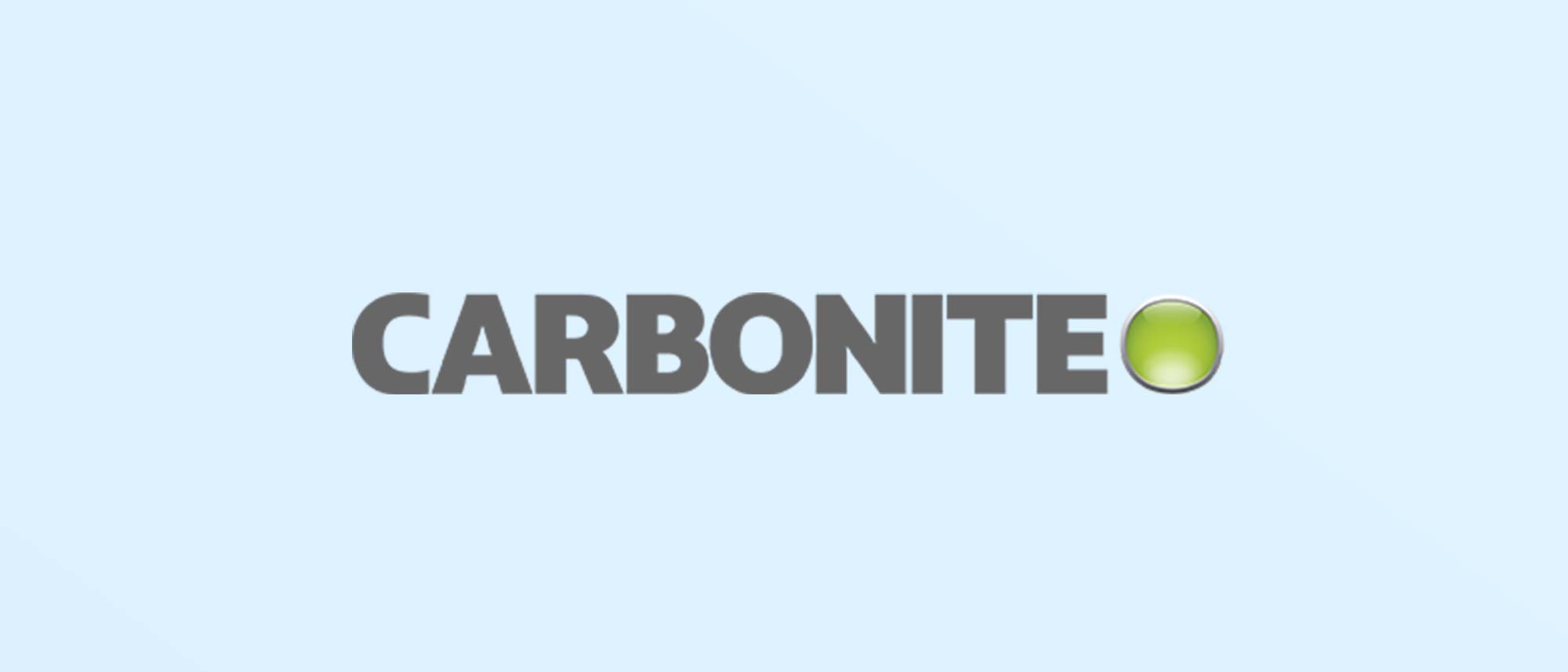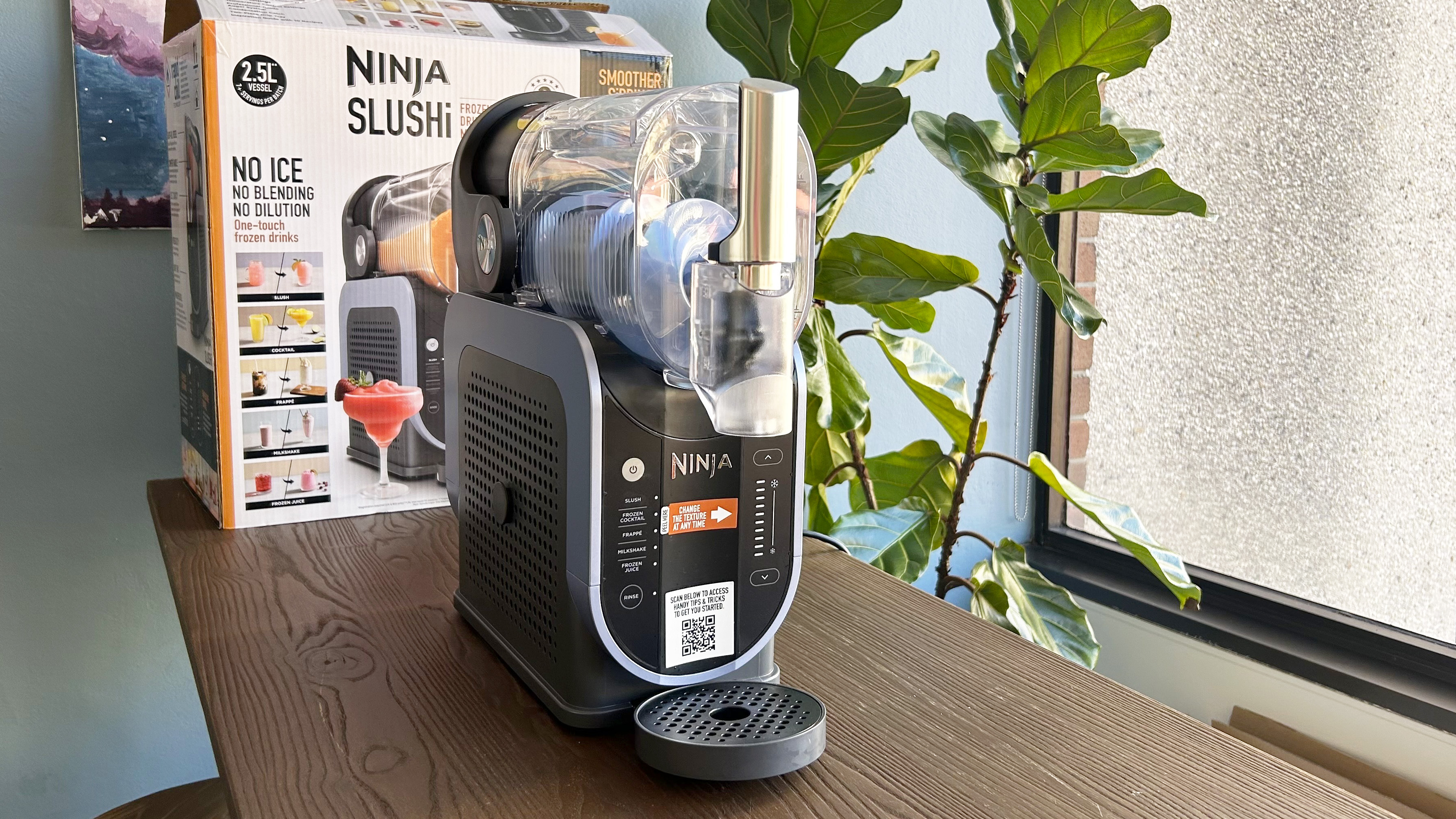Tom's Guide Verdict
Carbonite Safe provides the basics and does them well, but you'll pay a lot for the features you really want.
Pros
- +
Unlimited storage
- +
Clever and intuitive backup flagging system
- +
Courier service is great for emergencies
Cons
- -
Base plan is fairly expensive
- -
Odd and frustrating restrictions
- -
Weak upload performance
- -
No mobile apps at present
Why you can trust Tom's Guide
Number of devices backed up per subscription: Up to 5 computers
Storage limit: Unlimited
Backups of tethered external drives: One drive, with Plus or Prime plans
Backups of network storage drives: No
Backups of mobile devices: No
Operating system/application backups: No
Backups to local drives: No
Two-factor authentication: Yes
Drive shipping: Restore only
I wouldn't count unlimited storage space as a must-have feature for a cloud-backup service, but it is nice to have. Carbonite Safe starts with a point in its favor there, yet while all services with unlimited storage have some limitations, Carbonite's are the most restrictive.
This detriment, coupled with Carbonite's high prices, particularly for those who need to regularly back up video files, makes Carbonite Safe a tough recommendation among the best cloud backup solutions, despite a number of excellent UI elements that I would love to see others adopt.
(Carbonite has temporarily slashed prices on its Safe plans by 30%, but they're still a bit more than comparable offerings from rival services.)
Consumers craving a simple online backup solution for a single machine should consider Backblaze, while anyone with more than one machine to back up will want to look at IDrive.
Let's take a closer look at what Carbonite Safe has to offer and see whether this still might be the right solution for you.
Read on for the rest of our Carbonite Safe review.
Carbonite Safe: Cloud backup services defined
Online-backup services, or cloud backup services, make online copies of all the personal files on your computer. Some of these services can also back up system files, applications, smartphones, tablets and external hard drives. Most offer unlimited (or lots of) storage for a flat subscription fee, and some (but not Carbonite Safe) can also make local backups to an external hard drive.
These aren't the same as online-syncing services like Dropbox or OneDrive, which create copies of specific files and push them out to all your devices. It would cost too much and take too long to use a syncing service to back up all your files.
If you have thousands of photos, videos, or music files you want backed up to a safe location, a cloud-backup service is what you need.
Carbonite Safe: Costs and what's covered
Carbonite has a slightly confusing cost structure, depending on your needs, and the company has drastically reduced the incentives for multi-year subscriptions.
The lowest tier, Carbonite Safe Basic, comes with unlimited storage space for $6 a month, but you have to pay that annually ($71.99 per year, temporarily discounted to $58.99 for the first year).
You can also get a slight discount from the full price by paying for two years ($136.78, 5% off) or three years ($194.37, 10% off) at a time.
These are prices for a single computer, and you'll pay the full price for each additional machine. (Carbonite does offer a 15-day free trial.)
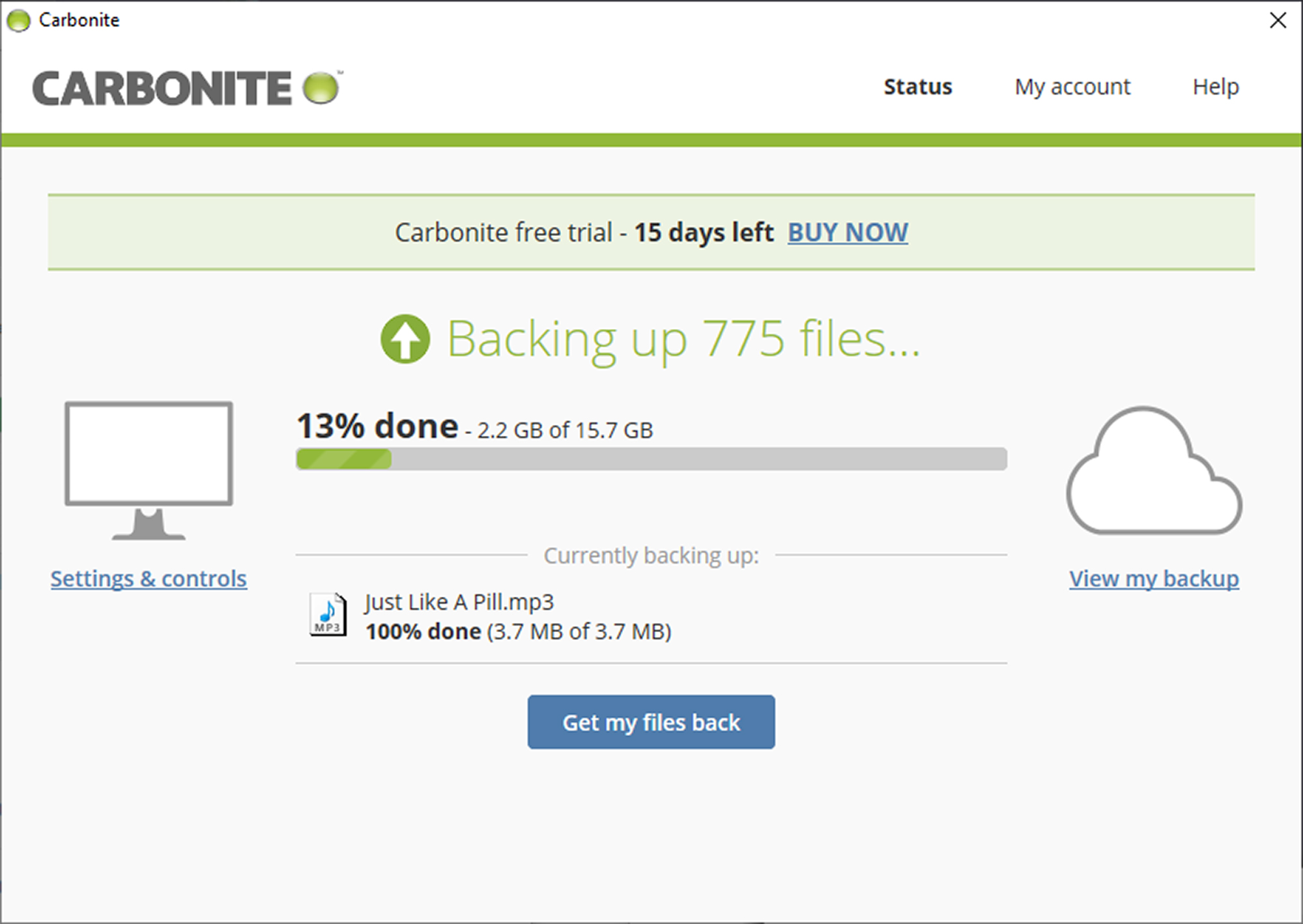
Carbonite Safe Plus brings you up to $111.99 per year, currently discounted to $83.99 for the first year. (It's $212.78 for two years and $302.37 for three.) This plan adds both the ability to include one USB-tethered external hard drive in the backup and automatic backup of video files. (Backing up networked drives is not available with any Carbonite consumer plan.) It also includes Webroot antivirus software.
Safe Basic users have to individually select videos to back them up, and across all three Carbonite subscription levels, you will need to individually select files over 4GB for backup.
The most expensive plan is called Carbonite Safe Prime and it reduces the cost of Carbonite's Courier Recovery service from $99.99 per instance to just $9.99. This service copies your files over to a physical drive and ships it to your home address in the event that you need to recover a large number of your files. The cost for Safe Prime is $149.99 for one year (discounted to $104.99 for the first year), $284.98 for two years or $404.97 for three years.
The best direct comparison to Carbonite Safe Prime is Backblaze's basic plan, which for $70 per year backs up a single PC, including video files and attached hard drives, and includes a similar drive-shipping recovery service that you can use for free up to five times per year.
That's an $80 savings each year versus the comparable Carbonite plan, enough to get yourself a nice external hard drive if you don't already have one.
Let's say you, instead, have three machines to back up. Carbonite Safe Basic would cost up to $216 per year, but you still won't get automatic video backups or the free courier service.
IDrive could cover all three computers (under a single account) and give you both of those missing features (includes one free yearly use of the courier service) for $79.50 per year for 5TB of backup space, or $99.50 per year for 10TB.
Carbonite Safe and its Plus and Prime versions run on Windows 7, Mac OS X 10.10 Yosemite and later versions of both operating systems. At the time of this review, Carbonite did not offer mobile apps.
Carbonite Safe: Performance
We tested each cloud-backup service using a Lenovo Yoga C940 14-inch laptop with a 10th- Gen Intel Core i7 running Windows 10 Home 64. Mobile apps were tested on a Google Pixel 3 with Android 10. Each service's software was uninstalled from both devices before another service's software was installed.
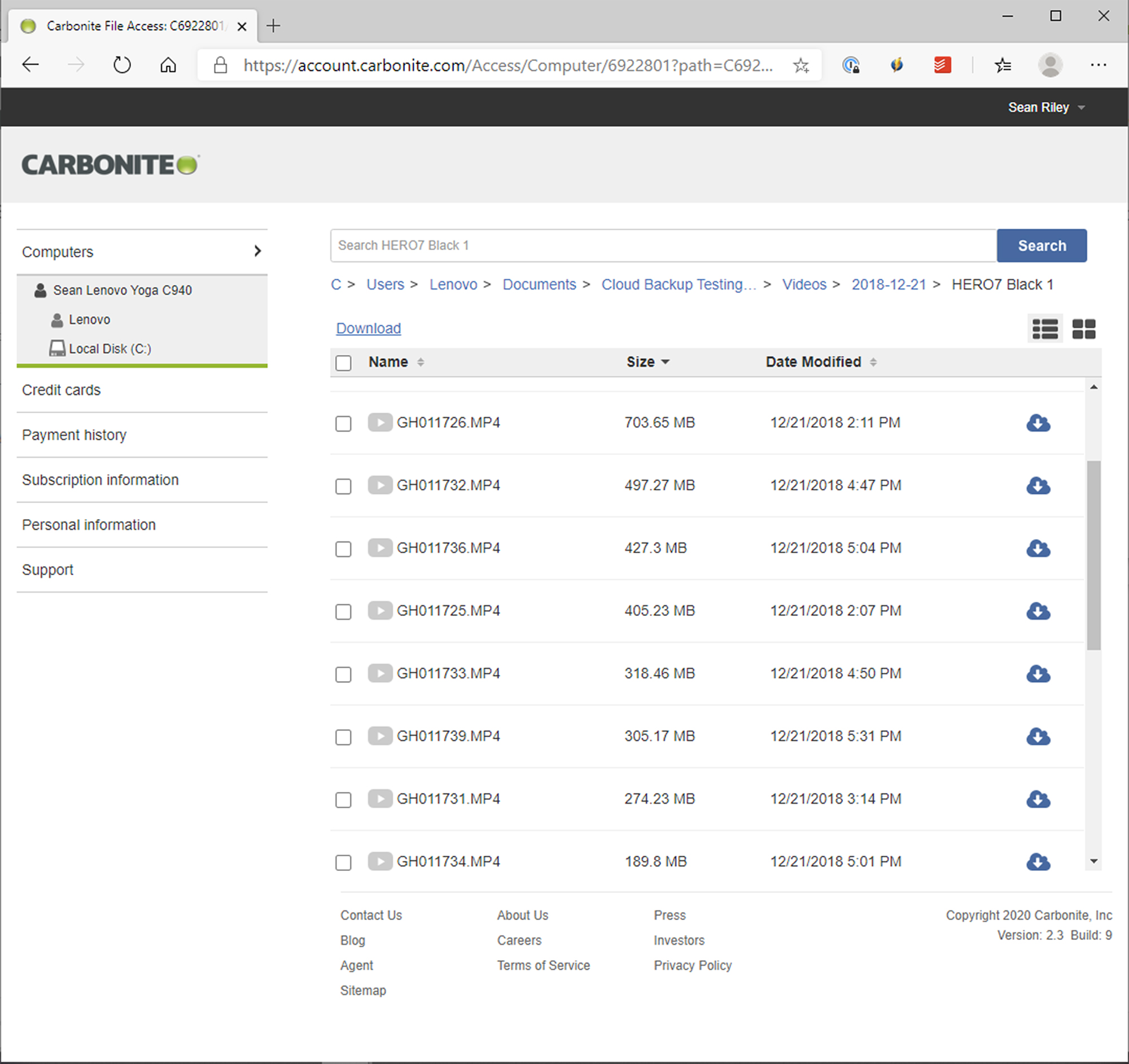
Our test set of files to back up consisted of 15.6GB of documents, photos, videos and music. We uploaded this data to each cloud-backup service and then restored a 1.4GB subset of these files to the Lenovo Yoga C940.
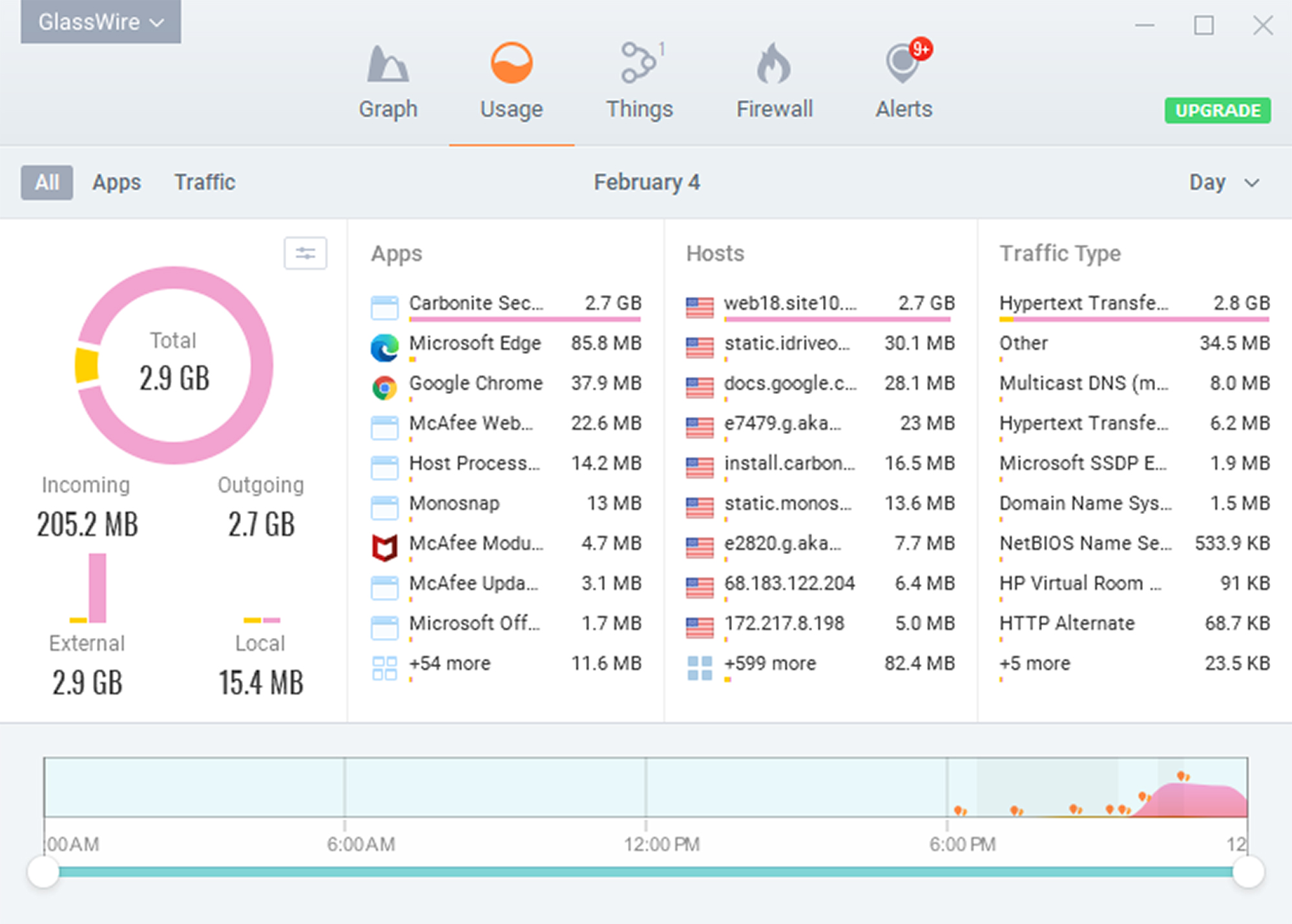
We used the GlassWire application to monitor upload and download speeds and the built-in Windows Resource Monitor to track CPU usage.
We conducted our tests in Middleton, Wisconsin, using TDS Telecom Extreme300 Fiber home internet service, which theoretically provided up to 300 megabits per second (Mbps) down and 300 Mbps up. Real-world speeds were typically closer to 50 Mbps down and 60 Mbps up, according to Speedtest.net.
| Row 0 - Cell 0 | Acronis True Image | Backblaze | Carbonite Safe | CrashPlan for Small Business | IDrive Personal |
| Initial upload speed | 26.4 Mbps | 36.4 Mbps | 17 Mbps | 27 Mbps | 25.1 Mbps |
| File-restore speed | 13.1 Mbps | 27.5 Mbps | 21.1 Mbps | 34.4 Mbps | 12.4 Mbps |
| CPU usage during backup | >1% | 2.5% | 3.3% | 7.3% | 1.2% |
| CPU usage otherwise | >1% | >1% | >1% | >1% | >1% |
Our initial upload of the 15.6GB of files to Carbonite's servers took approximately 2 hours and 21 minutes, with an average transfer speed of exactly 17 Mbps even as Speedtest.net showed the network offered 67 Mbps.
Restoring our 1.4GB of video files from Carbonite took approximately 9 minutes and 30 seconds. According to Speedtest.net, our connection provided 60-Mbps download at this time, while Carbonite delivered the files at 21.1 Mbps.
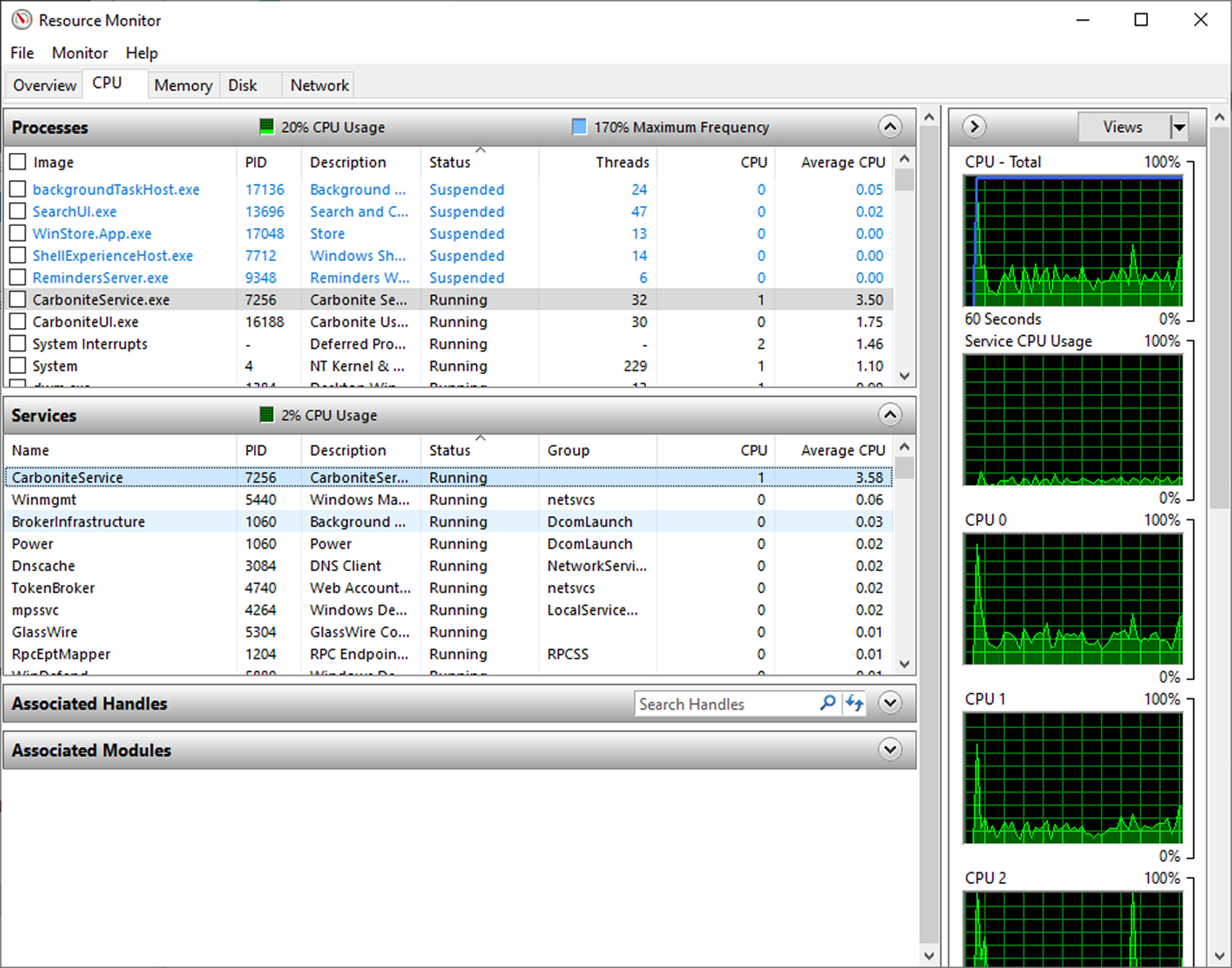
Carbonite's upload speed was by far the slowest in our testing. It took 45 minutes longer than the next slowest service, IDrive, and more than twice the upload time of the fastest option, Backblaze. Download speed was a different story, with Carbonite finishing squarely in the middle of its competitors.
During the initial backup process, the Carbonite application used an average of approximately 3.3 percent of our Lenovo Yoga C940's CPU resources. Usage fluctuated between 2 percent and 6 percent throughout testing.
This was the second-highest result, but it's not unreasonable and was a marked improvement from the 7% system hit I saw the last time I tested this service. Most importantly, Carbonite Safe's CPU usage dropped to below 1% following the initial backup.
Carbonite Safe: User interface
The primary control panel for Carbonite, like those of many of the online-backup services, is mainly just a status screen for your backup. You have access to your settings, file retrieval and account information.
Settings options are basic, just covering your backup schedule and then a few additional features.
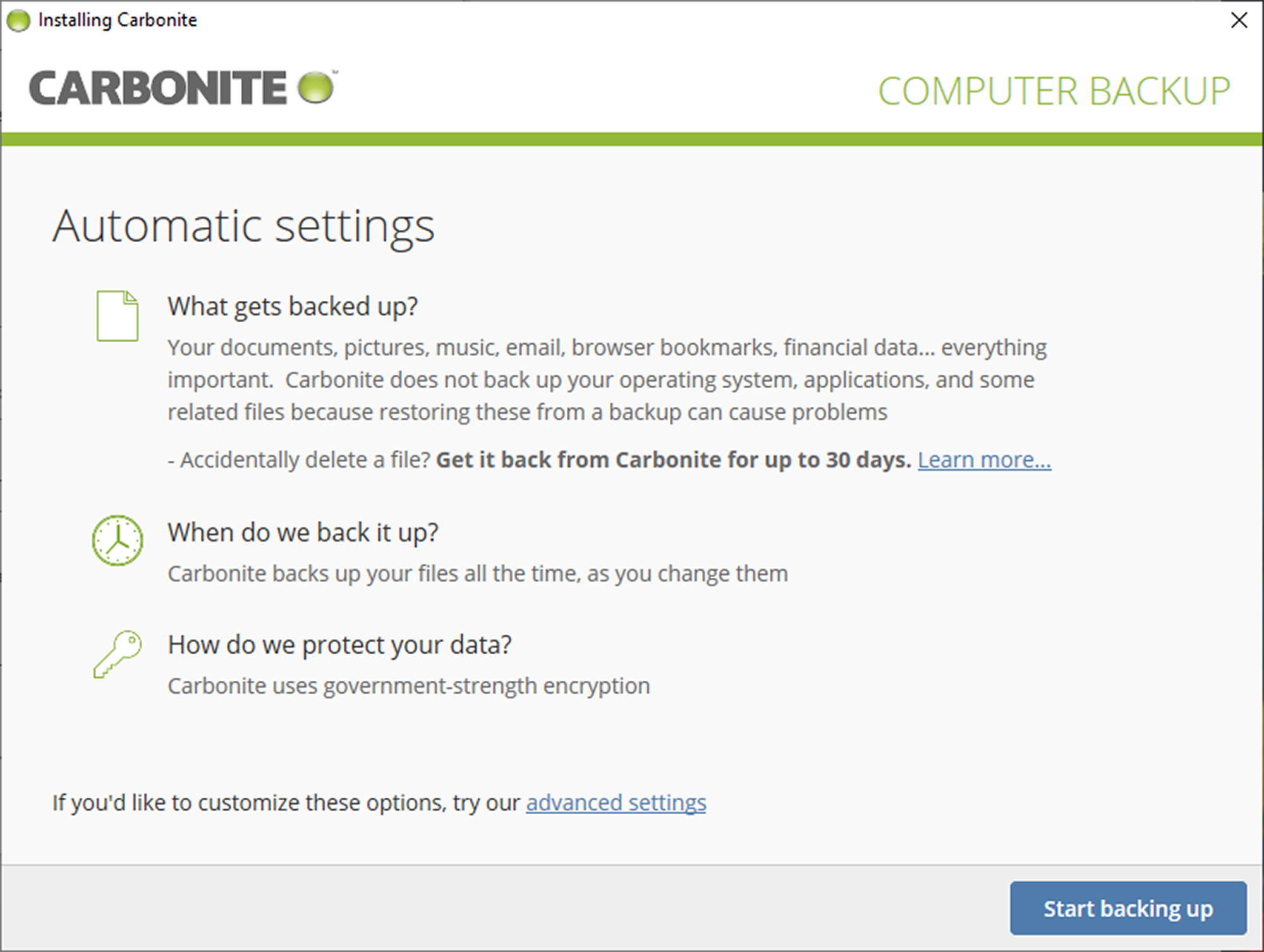
Backups can be set to happen continuously, which will back up any new or changed files within 10 minutes. You can also choose to have backups happen once a day at a set time or simply exclude the hours when you don't want backups running.
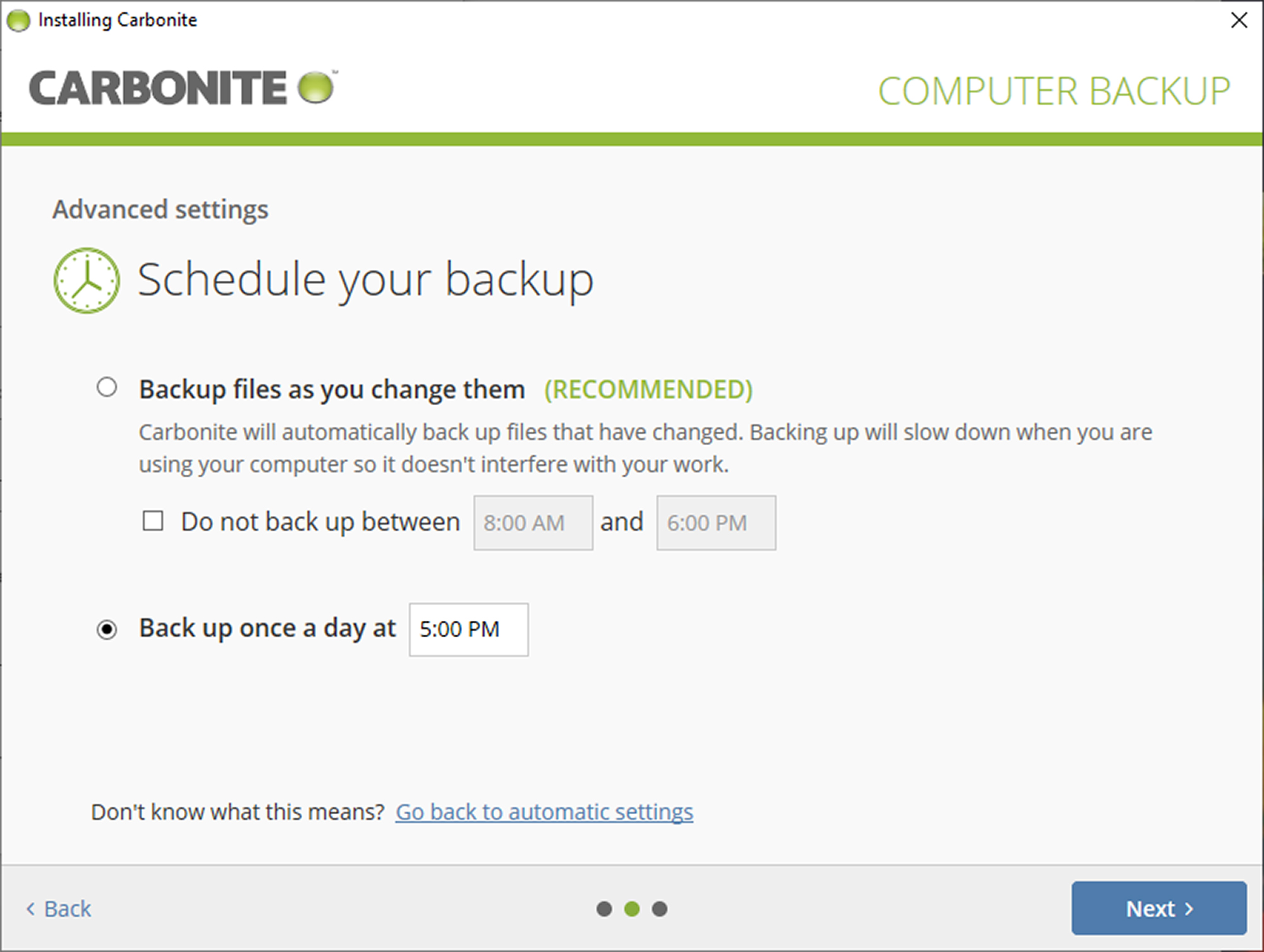
There are only three other settings that you can toggle: the flagging system, which I will explain in a moment; whether to include Carbonite's default file types in the backup; and reducing Carbonite's internet usage, which throttles the speed of your uploads.
The flagging, or "colored dots" system as Carbonite calls it, warrants further explanation. I was impressed with this feature when I last reviewed Carbonite Safe, and the fact that no one else has replicated it is quite surprising. It makes understanding your backup status incredibly simple and intuitive.
When toggled on, this colored-dot system will place either a full green, full orange, or half green dot on all of the folders and/or files that you have selected for backup with Carbonite.
A full green dot indicates the file or folder has been backed up, full orange means the file or folder is selected for backup and is pending backup, and half a green dot means that some of the files in that folder or its subfolders are backed up and others are not selected for backup.
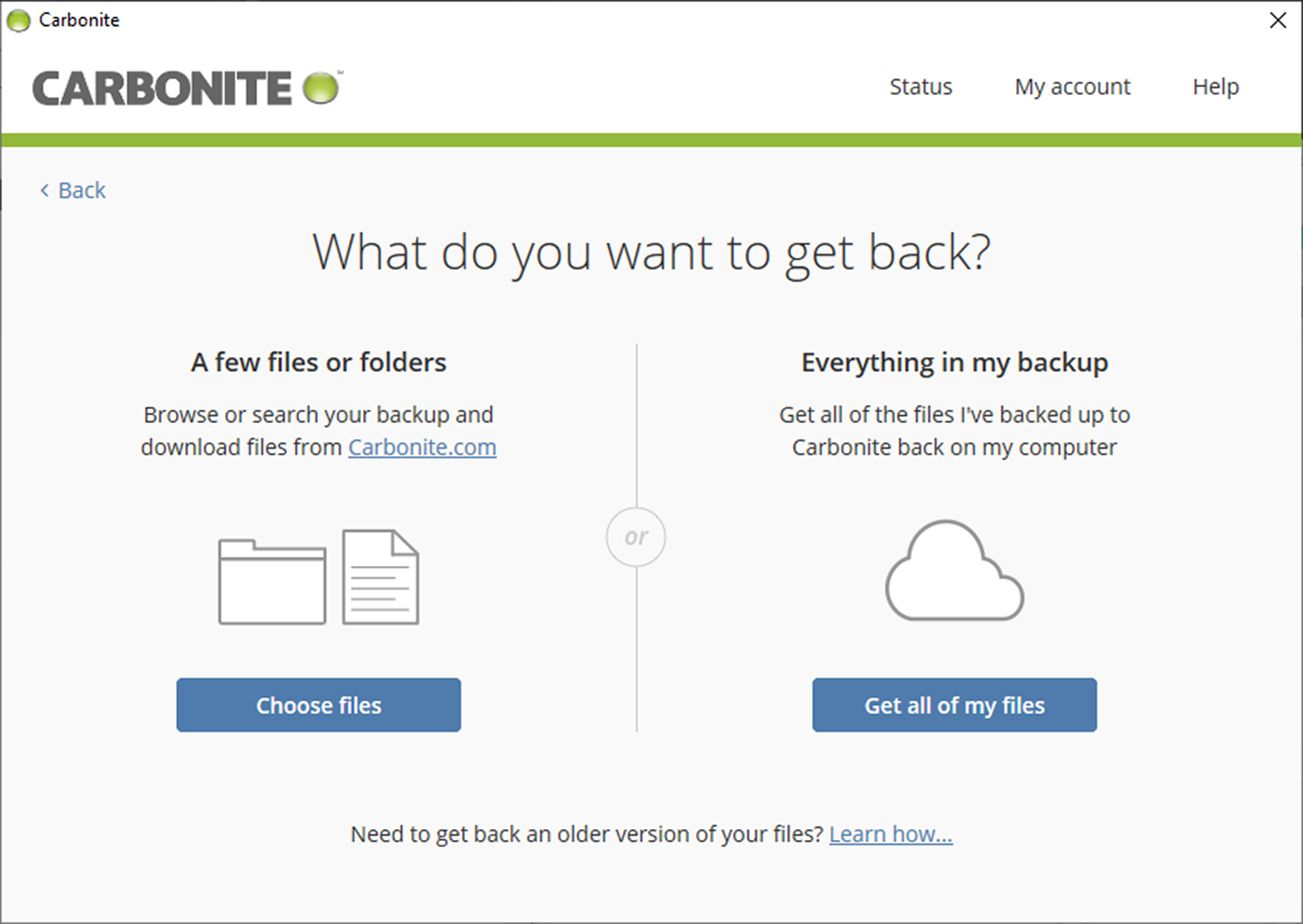
Restoration of backed-up files is handled entirely through the Carbonite Safe web interface — the desktop application simply links to that page from the control panel.
The web interface remains a fairly out-of-date file picker, but it does the job, allowing you to select multiple files easily in a list or icon view. You can download up to 5,000 individual files or up to 10GB at a time and it will simply download them all immediately as a zip file.
Carbonite Safe: Mobile apps
In late 2019, Carbonite removed its mobile apps from both the iOS App Store and the Google Play Store. Updated versions of the apps had been expected sometime in the second half of 2020, but a Carbonite representative told us there was "no current timeline" for their return.
Instead, Carbonite recommends using the company website through a mobile browser. You can download files that way, but the site is not designed with this in mind and is maddening to navigate and use from a mobile browser.
Considering that Carbonite once had very clean and easy-to-use mobile apps, this situation is disappointing and made all the worse by the lack of a timetable for the apps to be replaced.
Carbonite Safe: Extra features
Carbonite's Courier Recovery service will ship you your data on an external drive. This is available on all levels of service, but Carbonite Safe Prime customers get a steep discount.
For Safe Basic and Safe Plus customers, the cost of this service is $99 per computer each time you use it; with Safe Prime, it's only $9.99 per occurrence (although expedited shipping for Safe Prime users is another $19.99).
You have 21 days after receiving the drive to return it to Carbonite, or you will be charged $130 for a drive less than 3TB or $300 for more a drive than 3TB.
Courier Recovery is a great service to avoid excessive downtime in an emergency, but unless you plan on using it at least once a year, then there's no reason to opt for Carbonite Safe Prime. The cost of Carbonite Safe Plus along with a single Courier Recovery usage every two years will be less expensive than paying for two years of Safe Prime with an expedited Courier Recovery.
The Courier Recovery service is also considerably more expensive than comparable offerings from Backblaze (which refunds all but the cost of return shipping as long as you return the drive) and IDrive (which lets you do this for free once per year on a Personal plan and is only $59.95 for additional occurrences).
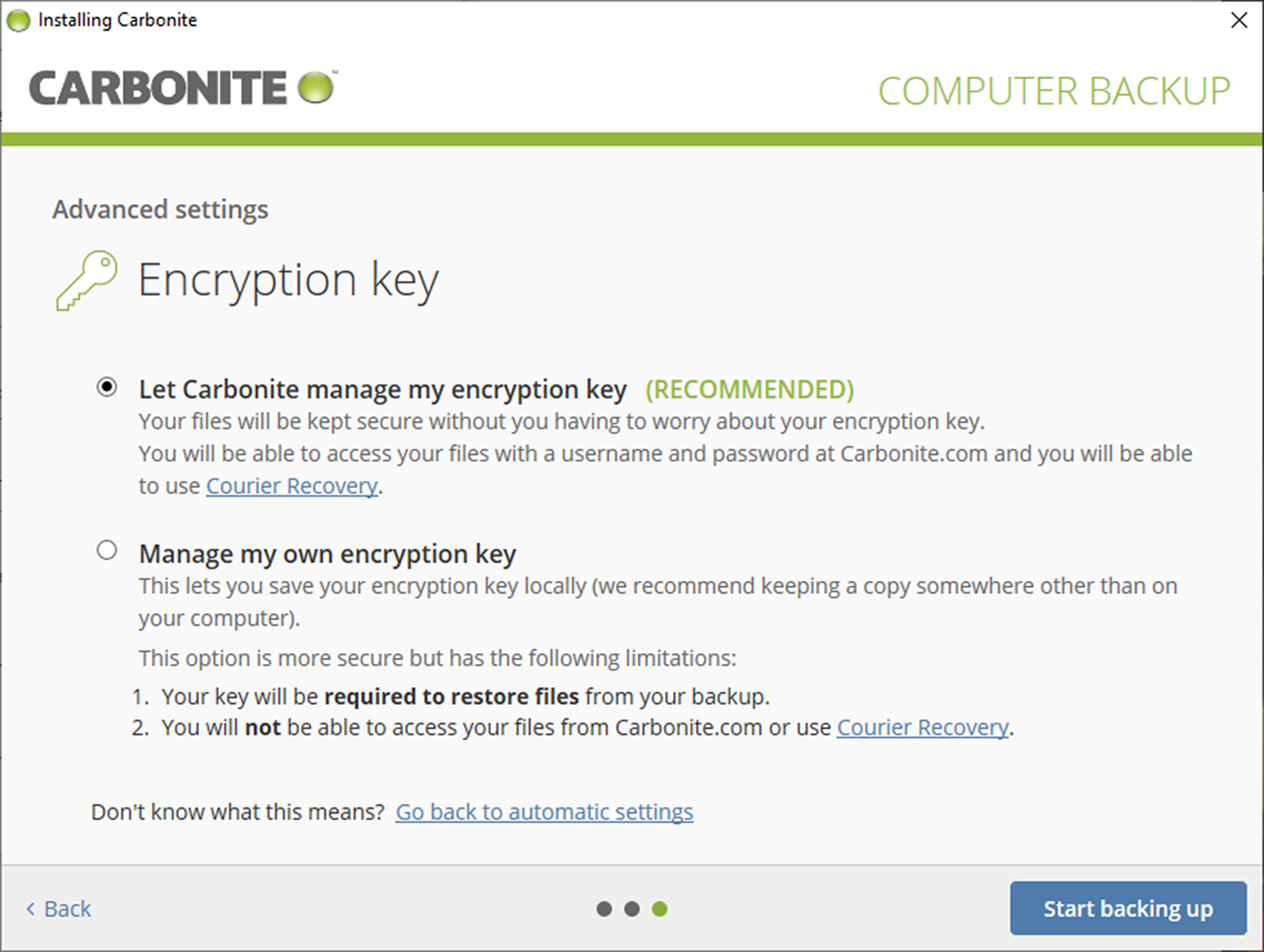
Carbonite does offer the ability to use your personal encryption key, which steps up the at-rest encryption from the default AES-128 standard to the stronger AES-256 one, something that more security-conscious users will appreciate. Most other online-backup solutions use AES-256, with the exception of Backblaze, which only offers AES-128.
Do be aware that you must make the decision to use a personal encryption key when you first back up your data, and that it will prevent you from using the aforementioned Courier Recovery service. And if you lose that key, you're on your own.
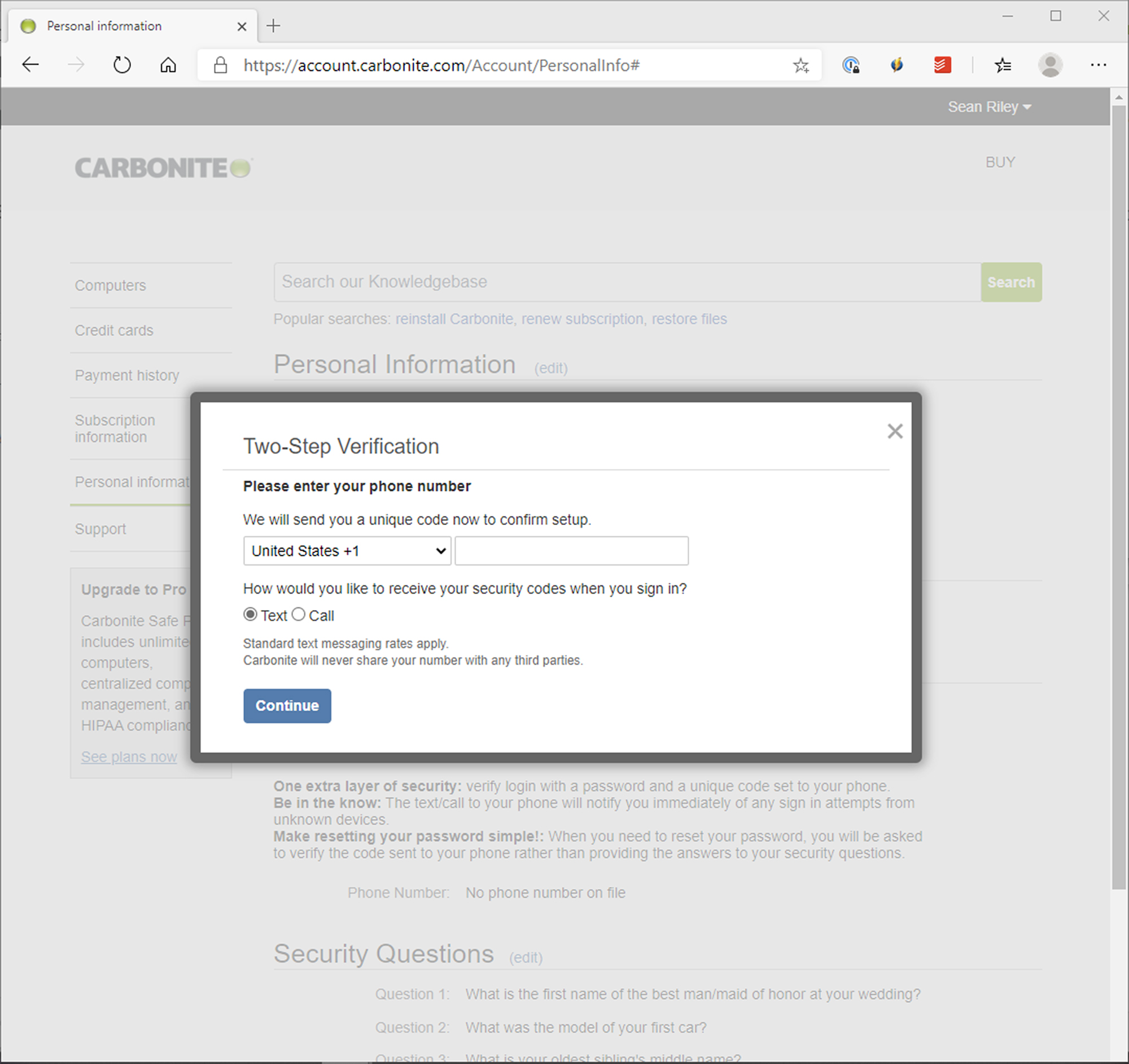
Carbonite also offers two-factor authentication (2FA) for your account, requiring verification of a code sent to your smartphone via SMS whenever you log in from a new computer. While this is preferable to nothing, this isn't our preferred method of 2FA and I would love to see Carbonite implement a more secure option.
Carbonite Safe review: Bottom line
From a value standpoint, it is hard to recommend Carbonite Safe, even though it works just fine. There's simply nothing compelling enough about what Carbonite does to recommend it over Backblaze as an unlimited cloud-backup option. From a feature standpoint, Carbonite is miles behind IDrive.
Carbonite was acquired by the enterprise cloud company OpenText near the end of 2019, which may be why the mobile apps were removed. I hope this is a sign that changes are coming to make Carbonite a stronger option again, but until those changes come, I would recommend looking elsewhere.
A self-professed "wearer of wearables," Sean Riley is a Senior Writer for Laptop Mag who has been covering tech for more than a decade. He specializes in covering phones and, of course, wearable tech, but has also written about tablets, VR, laptops, and smart home devices, to name but a few. His articles have also appeared in Tom's Guide, TechTarget, Phandroid, and more.
-
Ruthi Carbonite is easy to use for backup. It is horrid to depend on it for a restore in the event of a drive failure. The app take as much as TWO MONTHS to restore your system and you can only restore from the last backup. Don't want to wait? Pay them $99 and they will make a drive and send it to you within TWO WEEKS for you to restore on your own. Just want to restore files? There is a 10G limit! Support is useless. My system stopped the restore three times and had to be restarted. Support just looked at logs and restarted... No solutions. Takes forever to get to the right support personnel.Reply -
laserdevil One of my clients has this product and we needed to upgrade the plan. The support is terrible. I have been calling for the upgrade for more than a month now. Tech support cannot help me (only people I could get in touch with) because the account manager needs to make the changes. After a few calls, one of the tech support told me how to upgrade the portal itself. When I did that ($1200 for the year for one of our servers), it told me that I don't have the written version. I really don't know what to do with this dam company. The client does not want to use anyone else. This is crazy.Reply -
Ancient Geezer One of the things this review missed was that Carbonite, for the standard plans home users usually use, limit the file size to 4GB. These days that's pretty small. Even the 100GB limit of the Plus & Prime plans is small. I have VM & virtual drive files larger than 100GB, and so Carbonite can't back those up. One also finds, as did the reviewer, that Carbonite is very slow. You can have a 1Gbps connection and it will still only restore at about 1-2MB/sec (1-2 Mbps). The fact that they throttle so much makes Carbonite useless except for limited file restores.Reply
Carbonite PlansFile LimitsSafe Basic4GB (Excluding .PST files)Safe Plus100GB (Excluding .PST files)Safe Prime100GB (Excluding .PST files)Safe Core1TB (Excluding .PST files)
